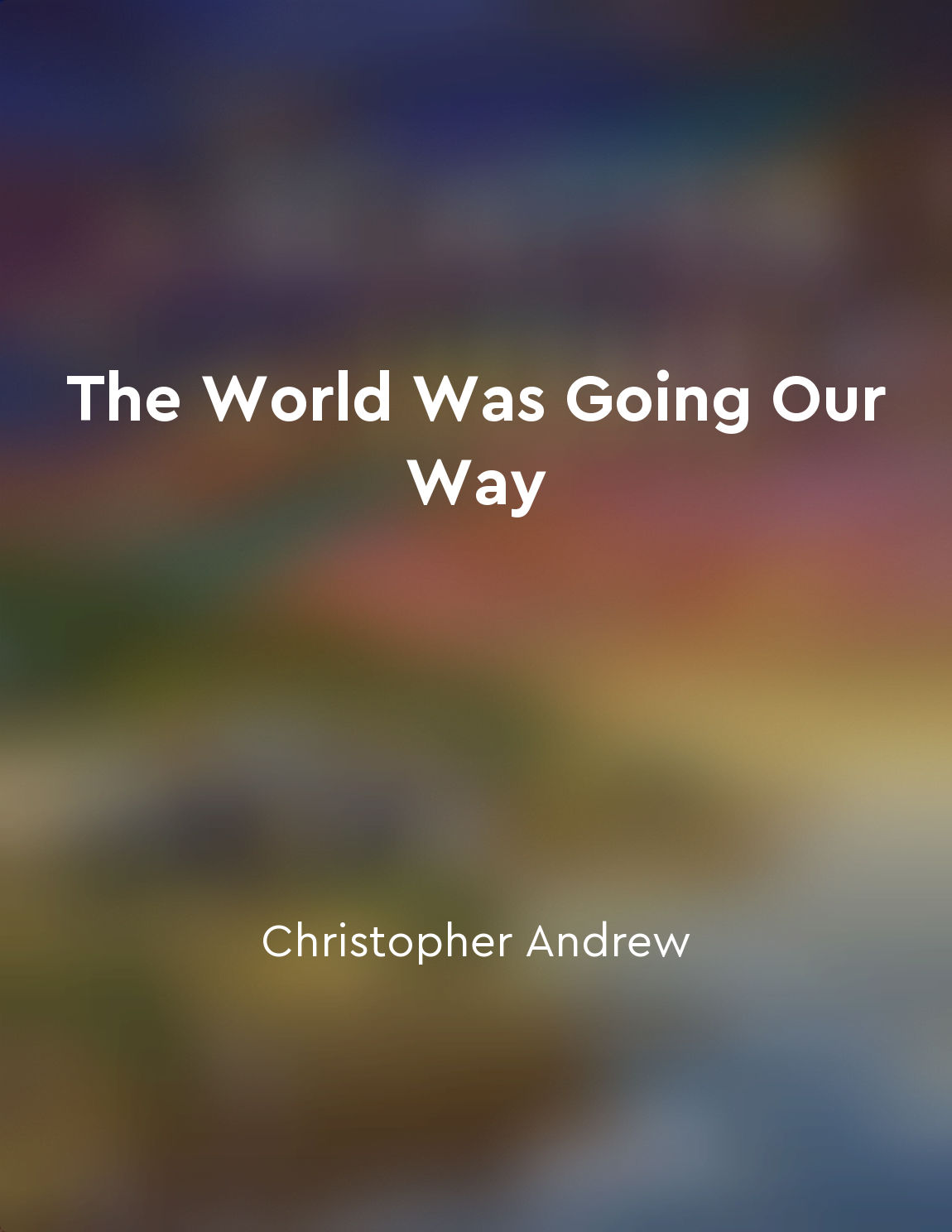collapse of communism, Eastern Bloc countries from "summary" of The World Was Going Our Way by Christopher Andrew
The collapse of communism in the Eastern Bloc countries was a seismic event that reshaped the political landscape of the world. The Soviet Union and its satellite states had long been seen as the vanguard of international communism, but in the late 1980s, cracks began to appear in the facade of their power. One of the key factors contributing to the collapse was the economic stagnation that gripped many Eastern Bloc countries. Years of centralized planning and inefficiency had left these economies in shambles, unable to keep pace with the more dynamic capitalist economies of the West. As living standards plummeted and shortages became endemic, popular discontent grew. At the same time, a new generation of leaders emerged in the Soviet Union and Eastern Europe, who were more open to reform and less wedded to the orthodoxies of the past. Mikhail Gorbachev's policy of glasnost and perestroika, which sought to liberalize and modernize the Soviet system, had unintended consequences, as it emboldened dissidents and reformers throughout the Eastern Bloc. The popular uprisings that swept through Eastern Europe in 1989, culminating in the fall of the Berlin Wall, marked the beginning of the end for communism in the region. The Soviet Union, under Gorbachev, initially sought to maintain its influence through a policy of "non-interference," but it soon became clear that the old order was crumbling. As the Soviet Union itself began to unravel, with nationalist movements gaining strength in its constituent republics, the Communist regimes in Eastern Europe found themselves increasingly isolated and vulnerable. One by one, they fell, as popular movements and opposition groups seized the initiative and demanded change. The collapse of communism in the Eastern Bloc countries was not just a political event, but a cultural and social one as well. It marked the end of an era in which the Soviet Union and its satellites had been seen as a monolithic bloc, and opened up new possibilities for the countries of Eastern Europe to chart their own destinies. In the years that followed, the former Communist states of Eastern Europe underwent a period of profound transformation, as they sought to build new political and economic systems based on democratic principles and free-market economics. The legacy of the collapse of communism continues to be felt in the region to this day, as countries grapple with the challenges of building stable and prosperous societies in the aftermath of decades of Communist rule.Similar Posts
Totalitarianism
Totalitarianism is a form of government that seeks to control every aspect of public and private life. It is not just about pol...

communism, Soviet Union, intelligence operations, KGB, GRU, NKVD
The Soviet Union was a communist state that placed a high value on intelligence operations. The various intelligence agencies l...
Stalin's policies led to mass repression and famine
Stalin's policies in the Soviet Union during the 1930s resulted in mass repression and famine on an unprecedented scale. The fo...
